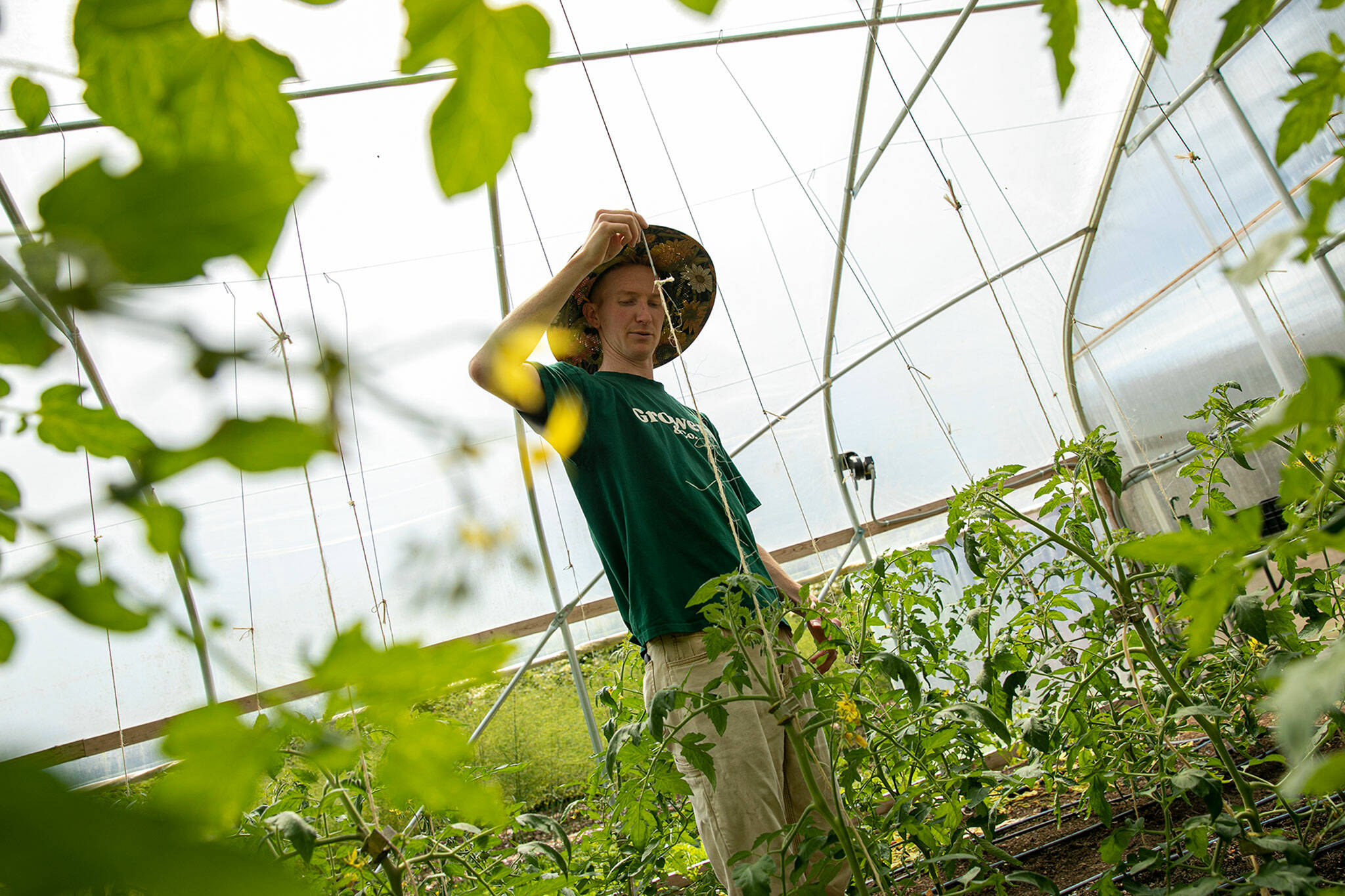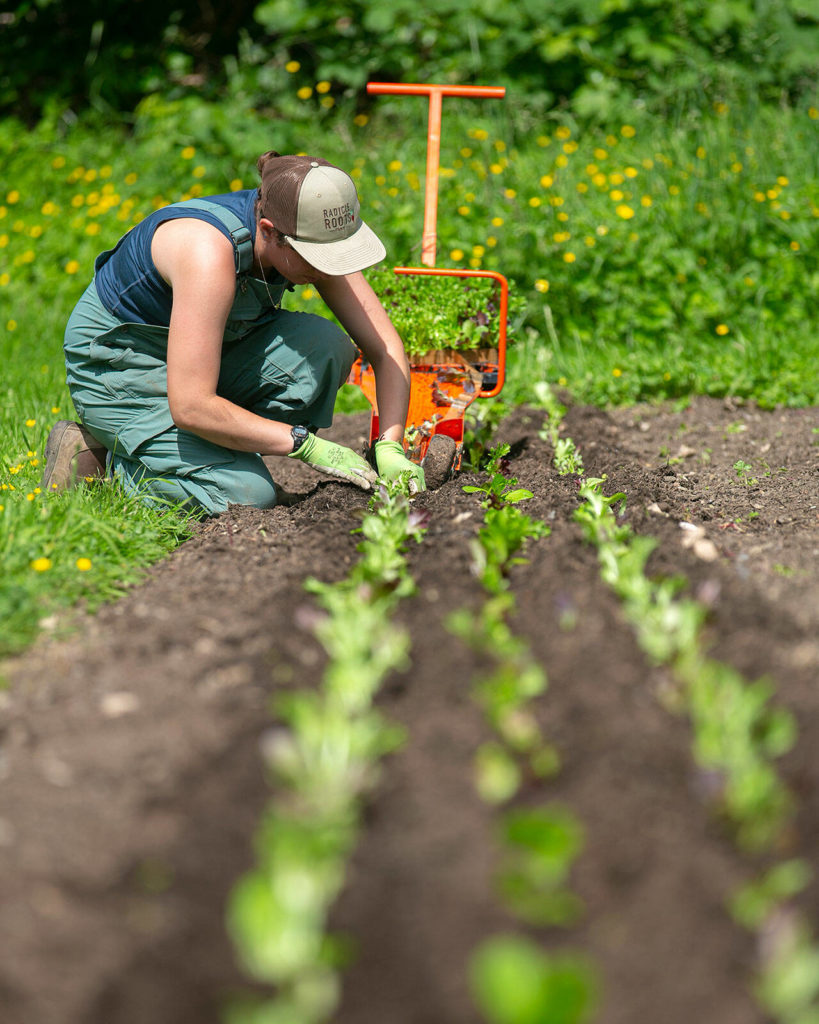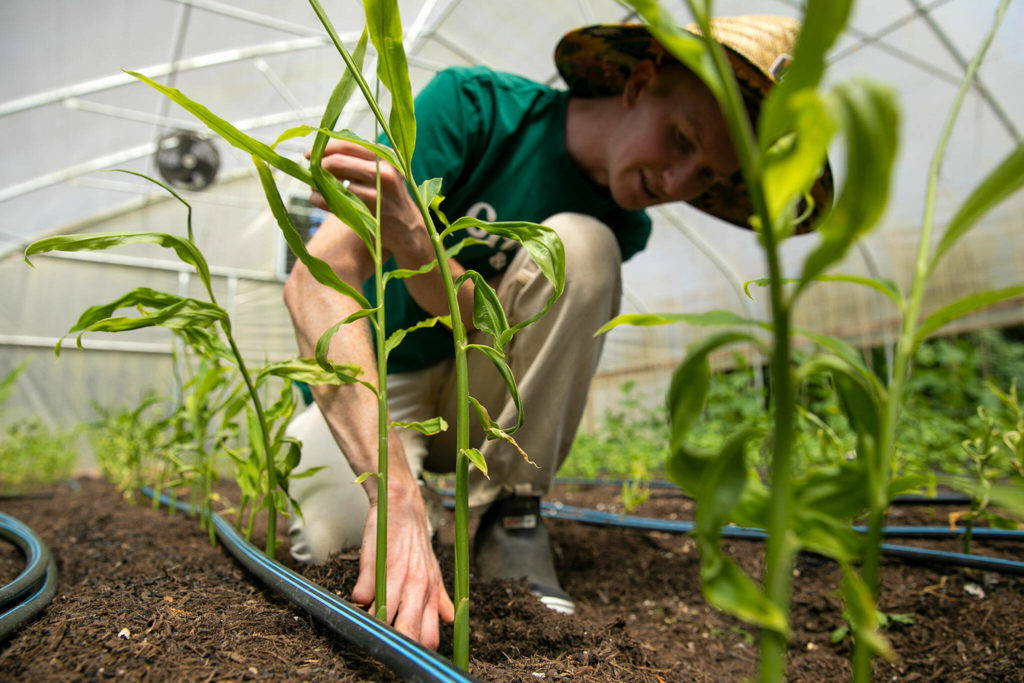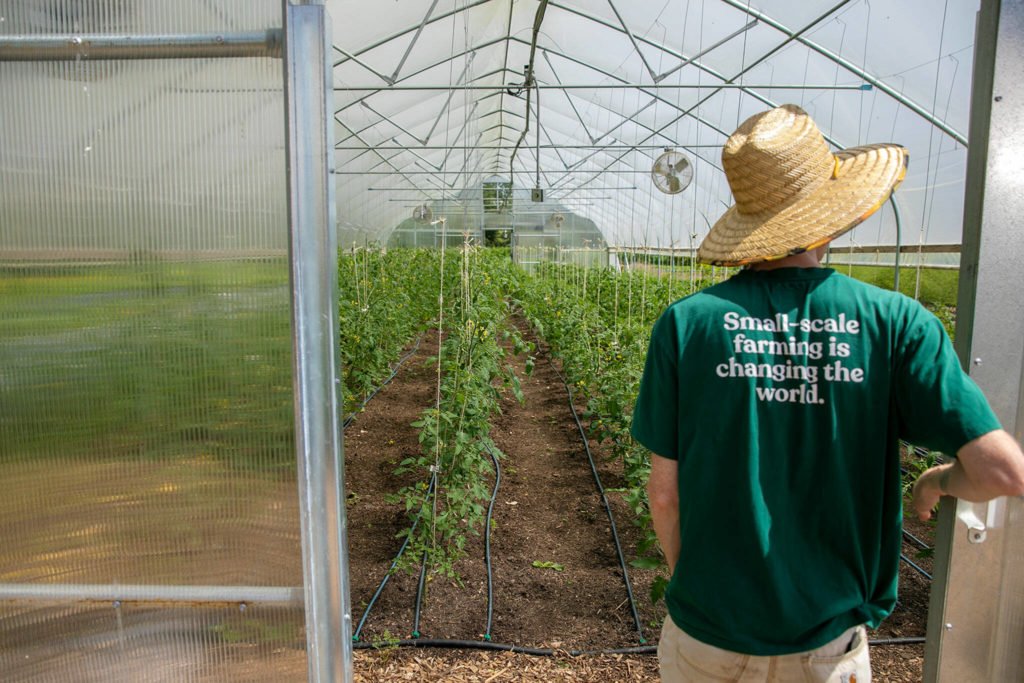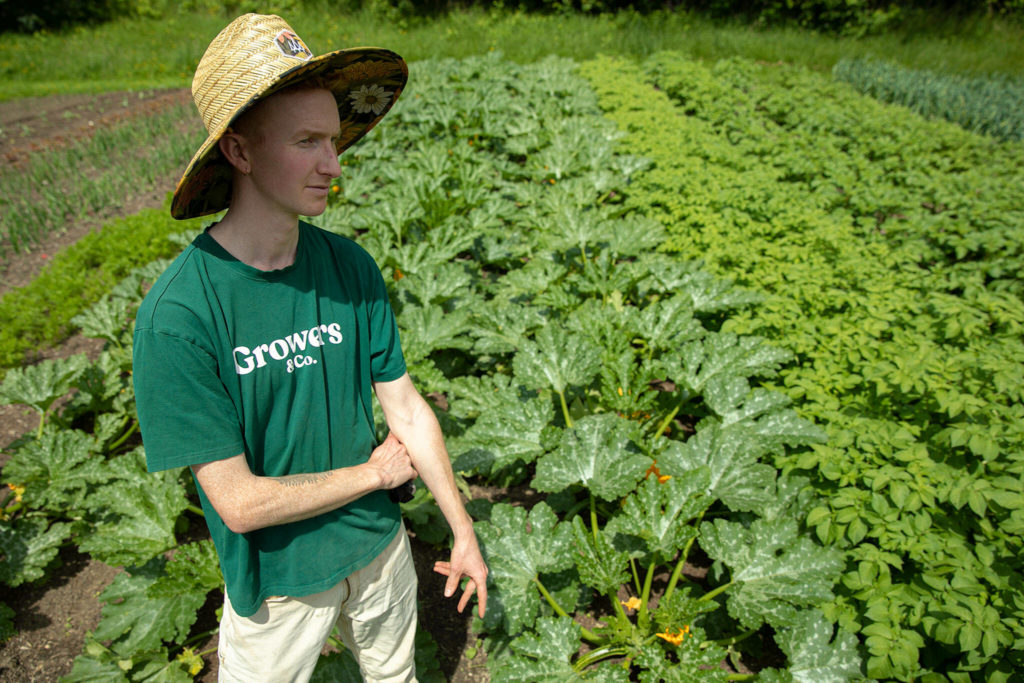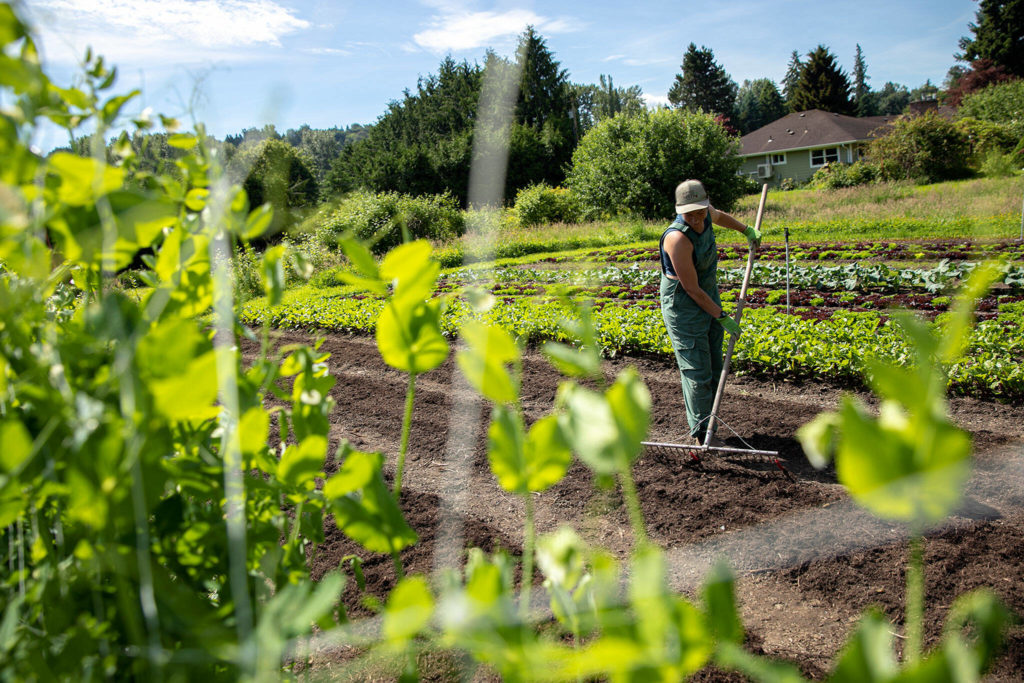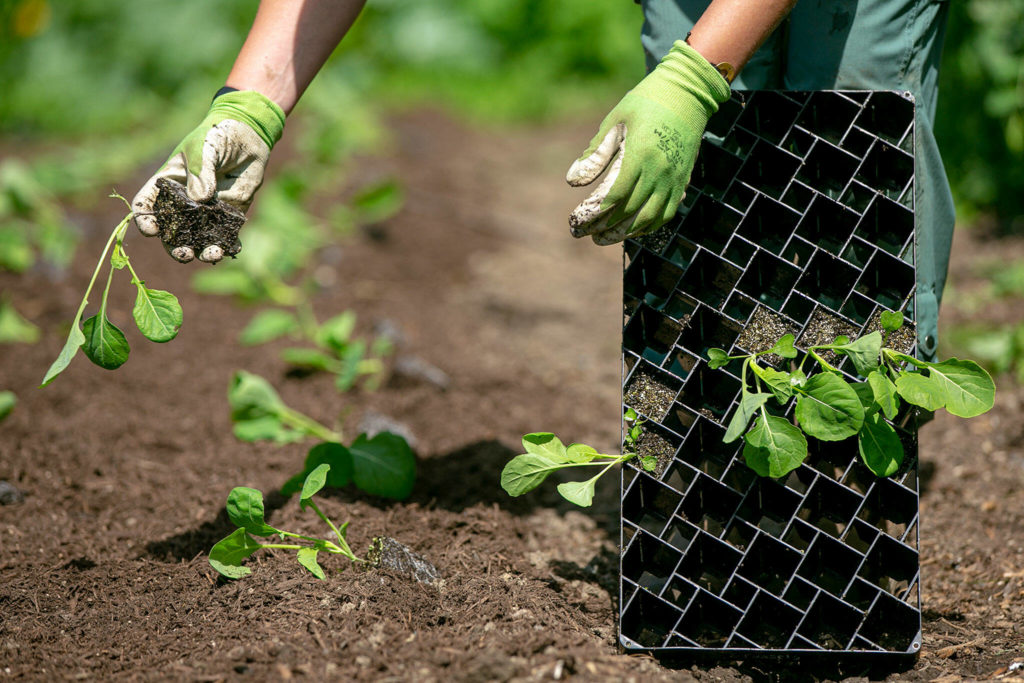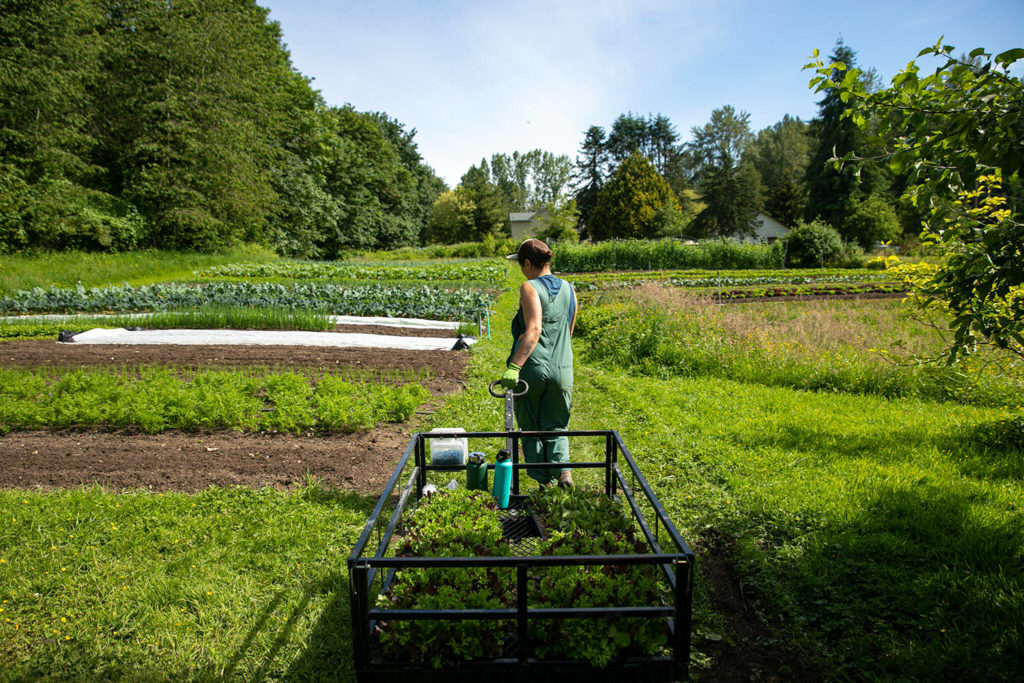This Snohomish farm proves that one acre is all you need to build a thriving — and sustainable — business.
SNOHOMISH — Carrots, sugar snap peas, rainbow Swiss chard, mint, microgreens, garlic scapes: These are a few of the 30-plus crops James Berntson cultivates on his Snohomish farm every year.
The kicker? He grows them all on less than an acre.
Radicle Roots Farm is part of a small-scale farming movement across Washington and the United States, one committed to using organic practices and completing most farm work by hand.
In Snohomish County, the number of small farms is growing. Farms between 1 and 9 acres represent 46% of all farms in the county, the United States Department of Agriculture’s 2017 Census of Agriculture found.
Several of Washington’s smallest farms use organic practices, but many choose not to certify under WSDA’s Organic Program since they grow for direct markets and may not need certification for marketing purposes. Currently, the program certifies 22 farms producing on one acre or less.
Radicle Roots Farm began on leased land in central Oregon eight years ago. In 2017, Berntson and their partner bought a home in Snohomish, where they began digging into the earth, planting beds and slowly growing their crop yield every year.
Since then, Berntson has grown a thriving business. Their tasty veggies and herbs are in high demand by consumers who favor locally, organically grown produce.
You wouldn’t know Radicle Roots Farm exists just from driving down Orchard Avenue, a residential street less than two miles from downtown Snohomish and right off the Centennial Trail.
That location is part of what makes the farm so successful: Up to 35% of sales come from nearby Snohomish Farmers Market, and another 35% comes from online purchases, available for pickup at the farm or at the market. Nearby restaurants and caterers also buy Radicle Roots produce. And their Seattle wholesaler, Farmstand Local Foods, has a local dropbox, so Berntson doesn’t have to travel down I-5 every week.
“We drive less than most farmers,” said Berntson, who is from Snohomish. “We designed it that way.”
Behind Berntson’s house lies a lush green oasis, complete with an unheated greenhouse they built two winters ago, permanent vegetable beds and an electric tractor they recently bought (not to mention an enthusiastic, veggie-loving golden retriever named Willy).
On a bright and sunny summer solstice, assistant farm manager Allie Leiser was planting Brussels sprouts along a compost-rich bed. Those hardy green veggies won’t be ready for harvesting until fall.
Berntson and their small-but-mighty team works mostly by hand. They also use tools like a paper pot transplanter and greens harvester that cut down on labor time. Radicle Roots doesn’t use synthetic fertilizers, herbicides or pesticides. Instead of spraying plants that are more susceptible to pests, they’ll use row cover as a physical barrier.
Their business model shows a small farm can give back to the earth as much as it takes. Radicle Roots is a no-till farm, increasing soil quality and biological activity while limiting weed pressure.
“Our yields have just gone up every year since implementing that, and the weed pressure goes down every year, so it’s kind of a win-win,” Berntson said.
A no-tillage system, combined with organic compost on a small-scale operation, allows Radicle Roots to invest a lot more in the soil than larger farms are typically able.
That’s helped Radicle Roots during heavy rains as well, since tillage can increase the threat of erosion.
As large-scale farmers across Snohomish County reeled from an unusually wet spring and record-breaking rain this year — some had hundreds of acres that were too soggy for planting — Berntson was able to use every part of his farm.
Unseasonably cold weather did set Radicle Roots back by several weeks this spring, but the farm is still on track to grow its profit margin in 2022.
Radicle Roots’ success didn’t happen overnight, or even after a couple of years. It took Berntson six years to turn a profit. He had to deal with all the logistics of starting a new farm: buy property, build and grow a farm, hire skilled workers, invest in infrastructure and increase plant diversity.
Last year, his crew made $100,000 in sales, with a goal of 10% to 20% growth every year moving forward. Berntson eventually wants to expand the farm enough to create a viable career path for other farmers via full-time, year-round positions with benefits.
Berntson acknowledged the privileges of starting their farm. They received financial assistance from their family to make a down payment on the house and invest in farming equipment.
“We’re independent now, but we didn’t start that way,” Berntson said.
For future small farmers, Berntson shared what they learned since building Radicle Roots: Work on a farm you want to model yours after (i.e.: Don’t go into it blindly). From there, start small until you can fine tune your process, equipment, crop planning and so forth. Feel confident in your system and scale progressively: Berntson expanded his farm quarter-acre by quarter-acre.
And finally, don’t do it alone. Build a community around your farm.
“Farming can be a really isolating, overwhelming job,” Berntson said. “It was hard — really hard — for the first couple of years. Now that we have a few full-time people, it’s been amazing to split the burden and responsibilities. It feels really good to get to a place where you’re not alone.”
Taylor Goebel: 425-339-3046; taylor.goebel@heraldnet.com; Twitter: @TaylorGoebel.
Talk to us
> Give us your news tips.
> Send us a letter to the editor.
> More Herald contact information.
